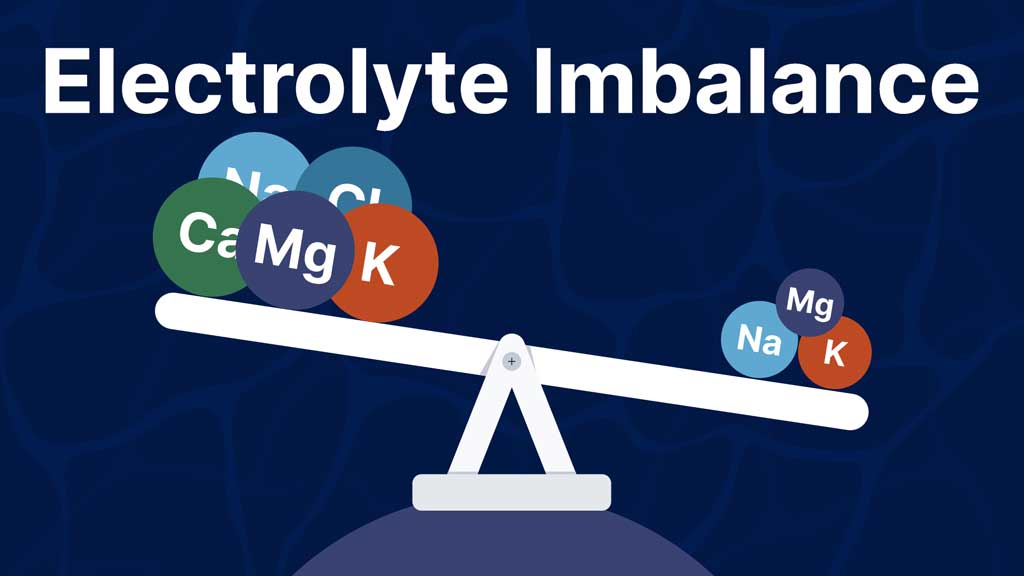- Empty cart.
- Continue Shopping
How the Body Regulates Electrolyte Balance

Electrolytes are essential minerals with an electric charge that play a crucial role in various physiological functions. Maintaining the right balance of electrolytes is vital for the proper functioning of cells, tissues, and organs. We will delve into the intricate process by which the body regulates electrolyte balance, ensuring optimal health and function.
I. Role of Electrolytes in the Body
1. Nerve Function
Electrolytes, such as sodium, potassium, calcium, and magnesium, are vital for transmitting electrical impulses along nerve cells. This is fundamental for processes like muscle contraction and communication between different parts of the nervous system.
2. Muscle Function
Electrolytes are crucial for muscle contractions, including the heart. For example, calcium ions are essential for muscle contraction, while potassium ions are involved in muscle relaxation.
3. Fluid Balance
Electrolytes help regulate the balance of fluids in and out of cells. This is essential for maintaining blood pressure, preventing dehydration, and ensuring that cells receive the nutrients they need.
II. Regulation of Electrolyte Levels
1. Kidneys
The kidneys play a central role in electrolyte balance. They filter blood and excrete excess electrolytes through urine. Importantly, they reabsorb electrolytes that the body needs, ensuring that essential minerals are not lost.
2. Hormones
Hormones, such as aldosterone and antidiuretic hormone (ADH), play a critical role in electrolyte regulation. Aldosterone, produced by the adrenal glands, helps the kidneys retain sodium and excrete potassium. ADH regulates water balance, indirectly impacting electrolyte levels.
3. Parathyroid Hormone
Produced by the parathyroid glands, parathyroid hormone (PTH) regulates calcium levels in the blood. It stimulates the release of calcium from bones, enhances calcium absorption in the intestines, and reduces calcium excretion in the kidneys.
III. Dietary Intake
1. Dietary Sources of Electrolytes
The foods and fluids we consume are a primary source of electrolytes. Common dietary electrolytes include sodium (found in table salt), potassium (abundant in fruits and vegetables), calcium (found in dairy products), and magnesium (found in nuts, seeds, and leafy greens).
2. Balancing Dietary Intake
Maintaining a balanced diet rich in a variety of fruits, vegetables, whole grains, and lean proteins helps ensure a steady supply of electrolytes. Avoiding excessive consumption of processed foods high in sodium is also important for maintaining a healthy balance.
IV. Exercise and Sweating
1. Sweat Losses
During physical activity, especially in hot environments, the body loses electrolytes through sweat. This primarily includes sodium and chloride. Replenishing these electrolytes through hydration and balanced nutrition is crucial for preventing dehydration and maintaining proper function.
Finally, the regulation of electrolyte balance is a finely tuned process that involves multiple organs, hormones, and dietary factors. Ensuring that electrolyte levels remain within a healthy range is crucial for optimal bodily function. By understanding this intricate system, we can make informed choices about diet, exercise, and hydration to support our overall health and well-being. Remember, maintaining electrolyte balance is not only about what we eat and drink, but also about how our body processes and utilizes these essential minerals.








